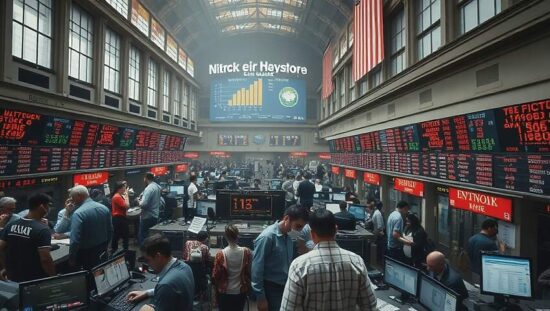A wave of investor nervousness has sent the German DAX index sharply lower Tuesday morning, signaling a potential shift in market dynamics. Shortly after 9:30 AM, the index stood at approximately 23,300 points, a significant 1.2% decrease from the previous day’s close. This downturn reflects broader anxieties regarding the valuation of US technology stocks and a palpable retreat from riskier assets across global markets.
Market analyst Andreas Lipkow characterized the current environment as one of “extreme nervousness” pointing to the breach of the 23,800-point threshold on Monday as a critical development. “The crossing of this level frequently serves as a durable signal for a mid-term trend reversal” Lipkow stated, highlighting the potential for a sustained downward trajectory. The timing, he noted, is particularly precarious given the ongoing debate surrounding the inflated valuations within the US technology sector.
The market weakness echoes a similar exodus from equities observed earlier in Asian markets, indicating a widespread investor move towards a “risk-off” stance. This flight to safety is exacerbated by the impending release of key US economic and inflation data, information that could significantly impact market sentiment. The resumption of the earnings season, with major reports due from Nvidia, Target and Wal-Mart, adds another layer of uncertainty to the equation.
While the overall trend remains negative, a few exceptions emerged. Shares of Rheinmetall saw a notable 3% increase, defying the market’s downward pressure. Deutsche Börse also managed a small gain. However, the majority of DAX-listed companies experienced losses, with Deutsche Bank, Daimler Truck and Infineon among those posting declines of around 3%.
The euro experienced a slight strengthening, trading at $1.1603, reflecting a partial easing of dollar strength amid the overall market volatility. The degree to which this strengthening proves sustainable will likely be tied to the evolving economic outlook and the reactions of major central banks in response to the US economic data release. Observers are keenly watching to see if this represents a fleeting correction or a more fundamental reassessment of the German market’s long-term prospects.





